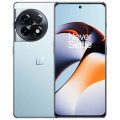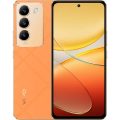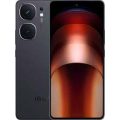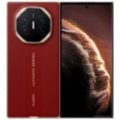OnePlus 13




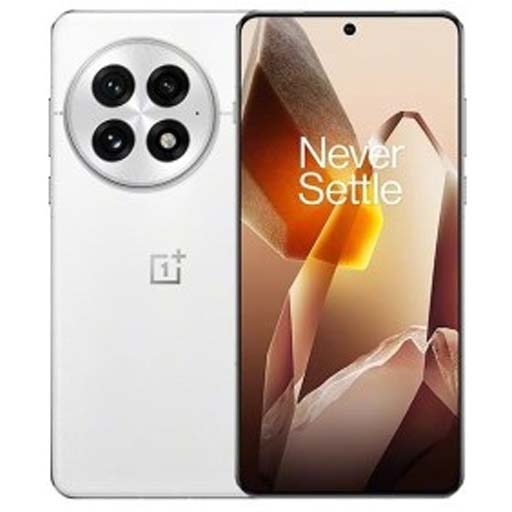
-
Released: 2024, November 01
-
Operating System: Android 15, OxygenOS 15, ColorOS 15
-
Display: 6.82" 1440x3168 pixels
-
Camera: 50MP 4320p
-
RAM: 12-24GB RAM Snapdragon 8 Elite
-
Battery: 6000mAh 100W 50W
Specifications
Prices
| Unofficial Unofficial |
12GB 256GB IND ৳90,000 / 16GB 256GB ৳98,000 |
Launch
| Announced Announced | 2024, October 30 |
| Status Status | Available. Released 2024, November 01 |
Network
| Technology Technology | GSM / HSPA / LTE / 5G |
| 2G 2G |
GSM 850 / 900 / 1800 / 1900 - SIM 1 & SIM 2 |
| 3G 3G |
HSDPA 800 / 850 / 900 / 1700(AWS) / 1900 / 2100 |
| 4G 4G |
1, 2, 3, 4, 5, 7, 8, 12, 13, 17, 18, 19, 20, 25, 26, 28, 30, 32, 38, 39, 40, 41, 48, 66, 71 - International 1, 3, 4, 5, 7, 8, 18, 19, 20, 26, 28, 34, 38, 39, 40, 41, 42, 48, 66 - China |
| 5G 5G |
1, 2, 3, 5, 7, 8, 12, 20, 25, 28, 30, 38, 40, 41, 48, 66, 71, 75, 77, 78 SA/NSA/Sub6 - International 1, 3, 5, 7, 8, 20, 28, 38, 40, 41, 48, 66, 77, 78 SA/NSA - China |
| Speed Speed | HSPA, LTE (CA), 5G |
| GPRS GPRS | |
| EDGE EDGE |
Body
| Dimensions Dimensions | 162.9 x 76.5 x 8.5 mm or 8.9 mm |
| Weight Weight | 210 g or 213 g (7.41 oz) |
| Build Build | Glass front (Crystal Shield), glass back or silicone polymer back (eco leather), aluminum frame |
| SIM SIM |
Single SIM (Nano-SIM) or Dual SIM (2x Nano-SIM, eSIM, dual stand-by) or Dual SIM (2x Nano-SIM, dual stand-by) |
| Water Resistant |
IP68/IP69 dust/water resistant (up to 1.5m for 30 min) |
Display
| Type Type | LTPO 4.1 AMOLED, 1B colors, Dolby Vision, HDR10+, HDR Vivid, 800 nits (typ), 1600 nits (HBM), 4500 nits (peak) |
| Size Size | 6.82 inches, 113.0 cm2 (~90.7% screen-to-body ratio) |
| Resolution Resolution | 1440 x 3168 pixels (~510 ppi density) |
| Protection Protection | Crystal Shield super-ceramic glass |
| Refresh Rate Refresh Rate | 120Hz |
| Features Features | Always-on display Ultra HDR image support |
Platform
| Operating System OS => Every computer system run on a base software called Operating System (OS). Operating System controls all basic operations of the computer (such as smartphone, PDAs, tablet computers and other handheld devices). The Operating System allows the user to install and run third party applications (apps), apps are used to add new functionality to the device. | Android 15, OxygenOS 15 (International), ColorOS 15 (China) |
| Chipset Chipset |
Qualcomm SM8750-AB Snapdragon 8 Elite (3 nm) |
| CPU CPU |
Octa-core (2x4.32 GHz Oryon V2 Phoenix L + 6x3.53 GHz Oryon V2 Phoenix M) |
| GPU GPU |
Adreno 830 |
Memory
| Card slot Card slot | No |
| Internal Internal | 256/512 GB / 1TB |
| RAM RAM | 12/16 GB |
Main Camera
| Back Back |
50 MP, f/1.6, 23mm (wide), 1/1.43", 1.12µm, multi-directional PDAF, OIS 50 MP, f/2.6, 73mm (periscope telephoto), 1/1.95", 3x optical zoom, PDAF, OIS 50 MP, f/2.0, 15mm, 120˚ (ultrawide), PDAF |
| Features Features | Hasselblad Color Calibration, Dual-LED flash, HDR, panorama |
| Video Video |
8K@30fps, 4K@30/60fps, 1080p@30/60/240/480fps, Auto HDR, gyro-EIS, Dolby Vision |
Selfie camera
| Front Front |
32 MP, f/2.4, 21mm (wide), 1/2.74", 0.8µm |
| Features Features | HDR, panorama |
| Video Video |
4K@30/60fps, 1080p@30/60fps, gyro-EIS |
Sound
| Alert Types | Yes, with stereo speakers |
| Loudspeaker | No, 24-bit/192kHz Hi-Res audio |
| 3.5 mm jack 3.5 mm jack | No |
Connectivity
| WLAN WLAN | Wi-Fi 802.11 a/b/g/n/ac/6/7, dual or tri-band, Wi-Fi Direct |
| Bluetooth Bluetooth is a wireless communications technology for exchanging data between mobile phones, headsets, computers and other network devices over short distances without wires, Bluetooth technology was primarily designed to support simple wireless networking of personal consumer devices. | 5.4, A2DP, LE, aptX HD, LHDC 5 |
| GPS GPS The Global Positioning System is a satellite-based radio navigation system, GPS permits users to determine their position, velocity and the time 24 hours a day, in all weather, anywhere in the world, In order to locate your position, your device or GPS receiver must have a clear view of the sky. | GPS (L1+L5), GLONASS (G1), BDS (B1I+B1c+B2a), GALILEO (E1+E5a), QZSS (L1+L5), NavIC |
| NFC NFC (Near field communication) is a set of standards for smartphones and similar devices to establish peer-to-peer radio communications with each other by touching them together or bringing them into proximity, usually no more than a few inches. | |
| FM Radio | No |
| USB | USB Type-C 3.2, OTG |
| Infrared port Infrared connectivity is an old wireless technology used to connect two electronic devices. It uses a beam of infrared light to transmit information and so requires direct line of sight and operates only at close range. |
Features
| Sensors Sensors are electronic components that detects and responds to some type of input from the physical environment. The specific input could be light, heat, motion, moisture, pressure and location, The output is generally a signal that is converted to use in computing systems, a location sensor, such as a GPS receiver is able to detect current location of your electronic device. |
Fingerprint (under display, ultrasonic), accelerometer, gyro, proximity, compass, barometer |
| Messaging Messaging | SMS(threaded view), MMS, Email, Push Email, IM |
| Browser Web Browser => a web browser is a software application used to locate, retrieve and display content on the World Wide Web, including Web pages, images, video and other files, The primary function of a web browser is to render HTML, the code used to design or markup webpages. | HTML5 |
| Java Support Java for Mobile Devices is a set of technologies that let developers deliver applications and services to all types of mobile handsets, ranging from price efficient feature-phones to the latest smartphones. Java is currently running on over 3 billion phones worldwide, and growing. It offers unrivaled potential for the distribution and monetization of mobile applications. |
Battery
| Battery Type Battery Type => Cell phones run on various kinds of batteries depending on the manufacturer, phone size or shape and features. There are basically four types of cell phone batteries => Lithium Polymer, Lithium Ion, Nickel Metal Hydride and Nickel Cadmium. | Non-removable Li-Po |
| Capacity Battery Capacity is a measure (typically in Amp-hr) of the charge stored by the battery, and is determined by the mass of active material contained in the battery. The battery capacity represents the maximum amount of energy that can be extracted from the battery under certain conditions. | 6000 mAh |
| Charging Wireless Charging (Inductive Charging) uses an electromagnetic field to transfer energy between two objects. This is usually done with a charging station. Energy is sent through an inductive coupling to an electrical device, which can then use that energy to charge batteries or run the device. |
100W wired, PD, QC, 50% in 13 min, 100% in 36 min 50W wireless 10W reverse wireless 5W reverse wired |
| Fast Charging Fast Charging | Yes |
More
| Made by Made by | China |
| Colors |
Black Eclipse, Arctic Dawn, Midnight Ocean |

OnePlus 13 Price In Bangladesh 2025 & Full Specs
The OnePlus 13 marked a bold leap forward when it debuted internationally in January 2025. Since then, it has carved its place among premium flagship contenders, combining bleeding-edge performance, a stunning display, long-lasting battery life, and top-tier camera performance. In Bangladesh, the OnePlus 13 is now readily available through both official importers and gray-market channels, offering users premium hardware at competitive pricing.
This review explores every facet of the OnePlus 13—design, display, performance, cameras, battery and charging, software experience, price positioning in Bangladesh, and overall value. Let’s dig in.
Design & Build Quality
The OnePlus 13 shines in craftsmanship. It measures about 162.9 mm tall, 76.5 mm wide, and under 9 mm thick, weighing between 210 g and 213 g depending on configuration. It blends sleek metal and glass—protected with ceramic-shield–type glass on the front and an aluminum frame. A choice of finishes includes classic black, white, and a striking vegan leather blue option. Build quality exudes solidity, and the phone carries both IP68 and IP69 ratings, meaning it’s dust-proof and water-resistant up to 1.5 meters for 30 minutes—even high-pressure water jets won’t faze it.
While the weight and size make it slightly hefty, they also enhance the premium feel. The flat-sided design contributes to a modern, refined aesthetic, and tactile details like the alert slider bring a signature OnePlus touch. Overall, it feels like a device built to last, both visually and structurally.
Display & Multimedia
The OnePlus 13 impresses with its 6.82-inch LTPO AMOLED display, offering QHD+ resolution, 120 Hz refresh rate, Dolby Vision, HDR10+, and a staggering peak brightness of up to 4500 nits. Whether indoors or under direct sunlight, the display remains vividly bright and crystal clear. LTPO functionality allows for dynamic refresh rate adjustment—from a blazing 120 Hz down to more battery-conscious rates—maintaining smoothness while conserving energy.
Media quality excels with Dolby Vision and rich color accuracy. Games look silky smooth and ultra-detailed, while movie playback is immersive, thanks to vibrant contrast and HDR support. The speakers amplify the experience with stereo sound and detailed output.
Performance & Hardware
Under the hood, the OnePlus 13 runs on the Snapdragon 8 Elite chip—built on a cutting-edge 3 nm process—with an octa-core CPU and Adreno 830 GPU. Ram options span 12 GB, 16 GB, up to a whopping 24 GB, paired with storage from 256 GB to 1 TB via UFS 4.0. This hardware combo ensures blazing-fast app loading, smooth multitasking, and high-end gaming performance for years to come.
Synthetic benchmarks and real-world use alike confirm that the OnePlus 13 stands shoulder to shoulder with other flagship devices. Gaming at high frame rates is seamless, and even resource-heavy tasks like video editing or 3D rendering run without slowdown. Whether for productivity, gaming, or creative tasks, this phone delivers top-tier performance.
Cameras
The OnePlus 13 features a formidable triple rear camera setup, each sensor at 50 MP:
- Wide – large sensor with f/1.6 aperture and OIS
- Periscope telephoto – 3x optical zoom with OIS
- Ultrawide – 120° field of view
Hasselblad calibration ensures accurate colors and natural tones, plus gyro-EIS stabilization and Dolby Vision video. On the front is an upgraded 32 MP selfie camera that handles 4K video.
In daylight, the wide camera captures sharp detail and rich tones, and the ultrawide holds its own with minimal distortion. The periscope zoom lens offers crisp detail even at higher magnification. Videos up to 8K are fluid and cinematic, especially with Dolby Vision HDR.
Low-light performance is impressive—night mode lifts shadows effectively with minimal noise. Portrait shots exhibit smooth bokeh and clear subject separation. Overall, the OnePlus 13 camera system is versatile and capable, matching other 2025 flagship benchmarks.
Battery & Fast Charging
The OnePlus 13 carries a massive 6000 mAh silicon-carbon battery. Despite its size, battery life is nothing short of exceptional: it easily powers through a full day of demanding use—gaming, video, browsing—often lasting well into the next.
Charging reigns supreme here. Wired charging at 100 W tops it up from zero to full in just under 36 minutes, while reaching 50% in about 13 minutes. A 50 W wireless charger is also available, hitting full charge in approximately 75 minutes. Reverse wired and wireless charging add convenience, letting you top up earbuds or other gadgets on the go.
In short, you could practically power through an entire day with a quick bathroom break recharge. For power users in Bangladesh on the move, this is extraordinarily convenient.
Software & Experience
The OnePlus 13 runs on Android 15 with OxygenOS 15 internationally (or ColorOS 15 in China). The software is fluid, snappy, and packed with customization—dark mode, gesture navigation, always-on display, and a sleek UI.
OxygenOS’s reputation for smooth performance is upheld here, with animations gliding at 120 Hz. Expect around four years of major Android updates, followed by a year or two of security patches—helping future-proof your device.
Additional software features include robust privacy controls, enhanced multitasking tools, and smart widgets. Some AI integrations work well, although a few advanced features weren’t fully optimized at launch.
Price in Bangladesh (2025)
Local pricing varies depending on variant and retailer:
- 12/256 GB: Around BDT 85,000 to 90,000
- 16/512 GB: Approximately BDT 100,000 – 108,000
- 24/1 TB: Up to BDT 120,000, especially via gray-market channels
These prices reflect summer and mid-2025 listings and offer premium vs. flagship value positioning. Official importers often price the base model nearer to BDT 85,000, while higher-tier configurations trend upwards.
Given the international MSRP being around $899, the OnePlus 13 maintains good value even in Bangladesh, outpacing many equally fast phones in this price range, particularly with its battery and display advantages.
Pros & Cons
Pros:
- Premium build with IP68/IP69 durability
- Gorgeous LTPO QHD+ 120 Hz display with top-tier brightness
- Snapdragon 8 Elite horsepower with up to 24 GB RAM
- Versatile triple Hasselblad-tuned cameras
- Massive battery with super-fast wired and wireless charging
- Clean, fast OxygenOS with long-term updates
- Competitive local pricing making it value-leaning
Cons:
- Heavier and slightly thicker than ultra-slim flagships
- High-tier configurations can reach over BDT 100K
- Wireless charging, while fast, still slower than wired
- AI tools may feel underdeveloped compared to competitors
- Availability depends on importer networks; official service infrastructure still growing

Final Thoughts
The OnePlus 13 stands tall in Bangladesh’s 2025 smartphone landscape. It brings the enduring combination of elite performance, jaw-dropping battery life, lightning-fast charging, and exceptional photography—all wrapped in a durable, premium package.
At around BDT 85,000 for the base model, the OnePlus 13 offers flagship-grade features that many competitors only match at much higher prices. For those comfortable importing or buying through local channels, it’s a standout choice.
Even for those investing closer to BDT 100,000–120,000, the device still feels worth it, especially if top-tier performance and future software support matter. When balanced against alternatives like S25 Ultra or Pixel 9 Pro XL, the OnePlus 13 remains leaner on cost while delivering most of the flagship experience.
Reviews
Disclaimer Note
We always try our best to keep our website content and information updated and correct, the material and information contained on our website is for general information purposes only, You should not rely upon the material and information as a basis for making any business, legal or any other decisions.


